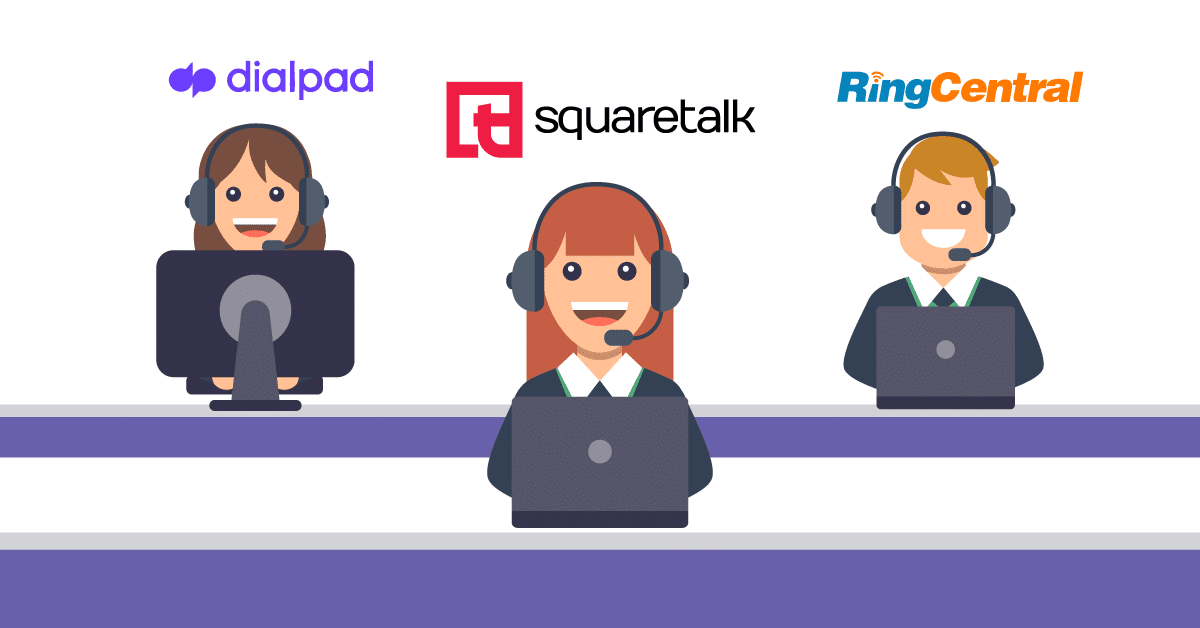Introduction
In today’s fast-paced call center environment, time is of the essence. The ability to efficiently manage one’s time isn’t just a sought-after skill—it’s a necessity. Imagine juggling multiple calls, addressing diverse concerns, and ensuring customer satisfaction—all in a day’s work. The sheer unpredictability and volume of calls can be overwhelming.
For call center agents, every second counts. A delayed response or a prolonged resolution can be the difference between a satisfied customer and a lost opportunity. However, it’s not just about speed but also about effectiveness. Efficiently managing time means calls are handled with care, precision, and professionalism.
Moreover, the challenges faced by agents aren’t limited to the calls alone. In a contact center, there is always non-productive time spend in planned and unplanned administrative tasks, training sessions, and team meetings — all demanding a slice of their time. Without robust time management skills, agents can easily find themselves swamped, leading to burnout and decreased productivity.
Recognizing these challenges underlines the paramount importance of effective time management. For call center agents, mastering this skill is more than just personal growth—it’s about ensuring they deliver the best service, every single time.
The Role of a Call Center Agent
In the bustling world of customer service, the role of a call center agent stands paramount. With a headset on and screens ablaze, these agents are the front line of client interaction, managing a plethora of tasks each day. Their responsibilities are varied, from resolving customer queries and managing complaints to providing information about products and services. Every call they handle is a unique challenge—no two callers have the exact same concern, and the sequence of calls is unpredictable.
This unpredictability is what makes the role both challenging and exciting. One moment, an agent might be pacifying an irate customer, and the next, they might be walking someone through a technical setup. Such dynamism requires agents to be agile, ready to adapt on the fly. It’s not just about following a script; it’s about reading the situation, understanding the caller’s emotions, and crafting a response that best addresses their needs. This ability to swiftly adapt and improvise makes the difference between an average agent and a stellar one. In a nutshell, being a call center agent is not just about answering phones—it’s about being an adaptable problem solver in real-time.
Time Management Techniques for Call Center Agents
In today’s fast-paced call center environment, mastering the art of time management is pivotal. An accountability coach service website often emphasizes the significance of allocating time efficiently to enhance productivity. Here are essential techniques that every call center agent should consider:
a. Prioritizing Tasks
Recognizing what’s urgent versus what’s important is crucial. The Eisenhower Box method, endorsed by many an online accountability coach, categorizes tasks into four quadrants, helping agents focus on activities that demand immediate attention while scheduling or delegating others.
b. Setting SMART Goals
SMART goals, which stand for Specific, Measurable, Achievable, Relevant, and Time-bound, can serve as a roadmap for agents. For instance, a goal might be to resolve 90% of customer issues within the first five minutes of a call. By adhering to the SMART framework, agents can set realistic expectations and achieve them consistently.
c. Taking Regular Breaks
Science has consistently proven that short breaks amplify productivity. A method many swear by is the Pomodoro Technique. It entails working with intense focus for 25 minutes followed by a 5-minute break. This can aid in maintaining high levels of concentration and reducing burnout.
d. Time Logging and Analysis
Agents should consider tracking their tasks to determine where their time goes. By analyzing time logs, inefficiencies come to the forefront. An online accountability coach can further assist in using these insights for overall improvement.
e. Organizing the Workspace
A clutter-free environment can drastically elevate an agent’s efficiency. By having a designated spot for everything and maintaining a clean workspace, agents can reduce distractions and increase focus.
f. Handling Multitasking Effectively
Contrary to popular belief, multitasking can sometimes hamper productivity. However, in a call center setting, juggling between tasks is a given. The key is to understand the difference between multitasking and task switching, ensuring that agents give due attention to each task without feeling swamped.
g. Utilizing Technology and Tools
From software that aids in time management to CRM systems that streamline customer interactions, technology is an ally. Leveraging these tools can reduce manual labor, minimize errors, and provide quick access to essential information, enabling agents to serve customers effectively.
h. Avoiding Procrastination
Even the most diligent agent might fall into the procrastination trap occasionally. Recognizing triggers, whether it’s a daunting task or a lack of motivation, is vital. Establishing micro-goals, seeking feedback from an accountability coach, or simply changing the work environment can help overcome this hurdle.
i. Efficient Call Handling
Time is of the essence in a call center. By mastering techniques like active listening and effective communication, agents can reduce the call duration while still resolving customer issues comprehensively. This not only saves time but also elevates customer satisfaction.
j. Continual Training and Skill Development
The world of customer service is ever-evolving. To stay ahead of the curve, agents should be open to regular training sessions. Whether it’s learning about a new CRM tool, understanding customer behavior patterns, or seeking advice from an accountability coach, continual learning is the cornerstone of excellence.
The Impact of Effective Time Management
Time management, especially in a high-paced environment like a call center, has far-reaching effects that go beyond just ticking off tasks on a to-do list. At the core of effective time management is the promise of optimized productivity and performance. Agents who master their time find themselves accomplishing tasks more efficiently, leading to a higher volume of resolved customer issues or queries. This enhanced productivity not only contributes to the business bottom line but also fosters a sense of accomplishment among agents.
Next comes the psychological benefits. A structured approach to time means agents are less likely to feel overwhelmed, even on busy days. This reduction in stress levels translates directly into improved job satisfaction. Happier agents, in turn, contribute to a more positive work environment, which has a cascading effect on team morale.
However, perhaps the most crucial aspect of effective time management is its direct correlation with customer satisfaction. When agents are organized and handle calls promptly without rushing, it builds a narrative of reliability around the brand. Customers appreciate timely resolutions and a respectful use of their time. This not only meets their immediate needs but builds a foundation of trust. A trusting customer is more likely to be loyal, recommend the brand to others, and be more understanding during peak times or unforeseen issues.
Challenges and Obstacles in Time Management for Call Center Agents
In the demanding environment of call centers, agents often face a plethora of challenges while attempting to implement time management techniques. Here’s a glimpse into some of these hurdles, and strategies to surmount them.
- Unexpected Call Volumes: Some days, the influx of calls can be unpredictable, making time management difficult. To counter this, agents can utilize forecasting tools to predict busy hours and schedule breaks or low-priority tasks during quieter periods.
- Difficult or Long Conversations: Some callers require more time than anticipated, disrupting an agent’s planned schedule. In such cases, having a standardized problem-solving protocol can help. By maintaining calm and using active listening skills, agents can swiftly address concerns and keep the conversation efficient.
- Technical Issues: Glitches with software or hardware can eat into an agent’s productive time. Continuous training and familiarizing oneself with common troubleshooting steps can be a lifesaver. Additionally, having a dedicated IT support team for immediate assistance can mitigate prolonged downtime.
- Multitasking Demands: Balancing multiple tasks simultaneously can be daunting. To combat this, agents can use techniques like the “Two-Minute Rule” – if a task takes less than two minutes, do it immediately. For longer tasks, setting specific times or employing time-blocking strategies can be beneficial.
- Procrastination: Delays, often due to a lack of motivation or feeling overwhelmed, can hamper time management. Setting smaller, achievable goals and celebrating small wins can act as a motivation booster. Additionally, understanding the root cause of procrastination can help agents devise personal strategies to combat it.
Conclusion
In today’s fast-paced call center environment, every second matters. The sheer volume of calls, coupled with the unpredictable nature of customer inquiries, makes time management not just a useful skill but a critical one. Mastering time management is, therefore, paramount for call center agents who aim for excellence in their roles.
A well-managed schedule can drastically reduce the stress of handling back-to-back calls. More than just ensuring that tasks are completed, effective time management ensures that they are done with a higher degree of precision, focus, and attention to detail. When an agent efficiently manages their time, they not only elevate their personal performance but also significantly enhance the caller’s customer experience. Happy customers lead to a successful business, and in the world of call centers, the adage that “time is money” couldn’t be truer.
Yet, understanding the importance of time management is only the first step. Implementation is where the real challenge lies. It’s essential for call center agents to be proactive in adopting the aforementioned techniques. By doing so, they can navigate the often chaotic world of customer service with ease and finesse. These strategies, from setting SMART goals to avoiding procrastination, are tried and tested pathways to a smoother and more efficient agent experience.
In closing, time is an agent’s most valuable asset. By embracing and mastering time management techniques, call center agents not only boost their productivity but also lay the groundwork for a fulfilling and successful career. The ripple effect of such mastery goes beyond the individual, benefiting the entire organization and, most importantly, the customers they serve.






